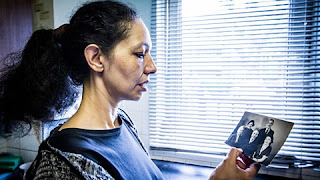This article was originally published in The Courier on 16th June 2018.
GRENFELL: Monday, BBC One
BEFORE GRENFELL: A
HIDDEN HISTORY: Monday,
BBC Two
If
the definitive account of the Grenfell Tower fire tragedy is written one day, if
power is held to account and justice is finally served, then Ben Anthony’s
extraordinary 90-minute documentary, GRENFELL,
will be one of its key sources.
It
should, by rights, have a socio-political impact on a par with Ken Loach’s Cathy Come Home.
Anthony
is an acclaimed film-maker who specialises in detailed, compassionate studies
of everyday human existence; the ideal director for a film in which survivors,
and the relatives of some of those who lost their lives, were allowed to speak
openly and movingly about what they’ve been through.
Anthony
started filming in the immediate aftermath of the fire. Over the last year he’s
gathered a phalanx of testimonies. Without recourse to hand-holding narration,
he encapsulated the terror, anger, confusion, chaos and injustice of a tragedy
in which 72 people died.
Grenfell
Tower is situated in a deprived part of one of Britain’s wealthiest boroughs,
Kensington and Chelsea, which boasts the highest gap between rich and poor in
the country. The local council have been blamed for failing, as a cost-cutting
measure, to install the tower with fire-resistant cladding. For years,
residents have been complaining about lacklustre refurbishment. One man was
told, when he spoke to senior management, “If I was getting it for nothing, I
wouldn’t mind.”
With
clear-eyed precision, Anthony and his interviewees made the shameful, powerful,
angering point that the easily preventable Grenfell fire was a towering symbol
of so-called second-class citizens being neglected and ignored. It encapsulated
the repulsive inequality that courses like a virus through the veins of our
society.
Anthony
met people who lost everything in the fire, people who still haven’t been
adequately rehoused. He also spoke to a local Labour councillor who was
appalled that his colleagues didn’t gather immediately to formulate a disaster
plan.
During
their onscreen interviews, Kensington and Chelsea Council leader Elizabeth
Campbell and her colleague Kim Taylor-Smith came across as patronising and
dismissive; they clearly can’t relate to the profound concerns of their
constituents or the wider issue of economic disparity.
The
only positive aspect of this tragedy was the life-affirming way in which the
local multiracial community banded together to help those affected, but that civic
pride altruism only served to highlight the lax incompetence of the
authorities.
Amidst
a wave of escalating tension, the preternaturally uncompassionate Theresa May
visited the area two days after the fire, but failed to address residents before
being quickly bundled into an armoured car. The class divide in microcosm.
The
NHS estimates that 11,000 people have been psychologically affected by the
Grenfell fire. Ben Anthony’s vital film was an important step towards letting
them, and every overlooked community living in social housing, speak out on a
national level. We can’t ignore this anymore.
A
similarly direct companion piece, BEFORE
GRENFELL: A HIDDEN HISTORY provided further context by explaining how, over
the last 150 years, Kensington and Chelsea became so staggeringly divided in
terms of wealth.
In
a nutshell: Victorian property developers built homes for wealthy Londoners
blind to the poverty in their neighbouring areas. Nothing has changed since.
The
entire point of these commemorations was summed up by a local resident,
featured in the second programme, who said, “Grenfell is the culmination of the
disrespect, the neglect and the way we were never listened to. Grenfell
would’ve never happened if there was even just some respect for our voice.”



No comments:
Post a Comment